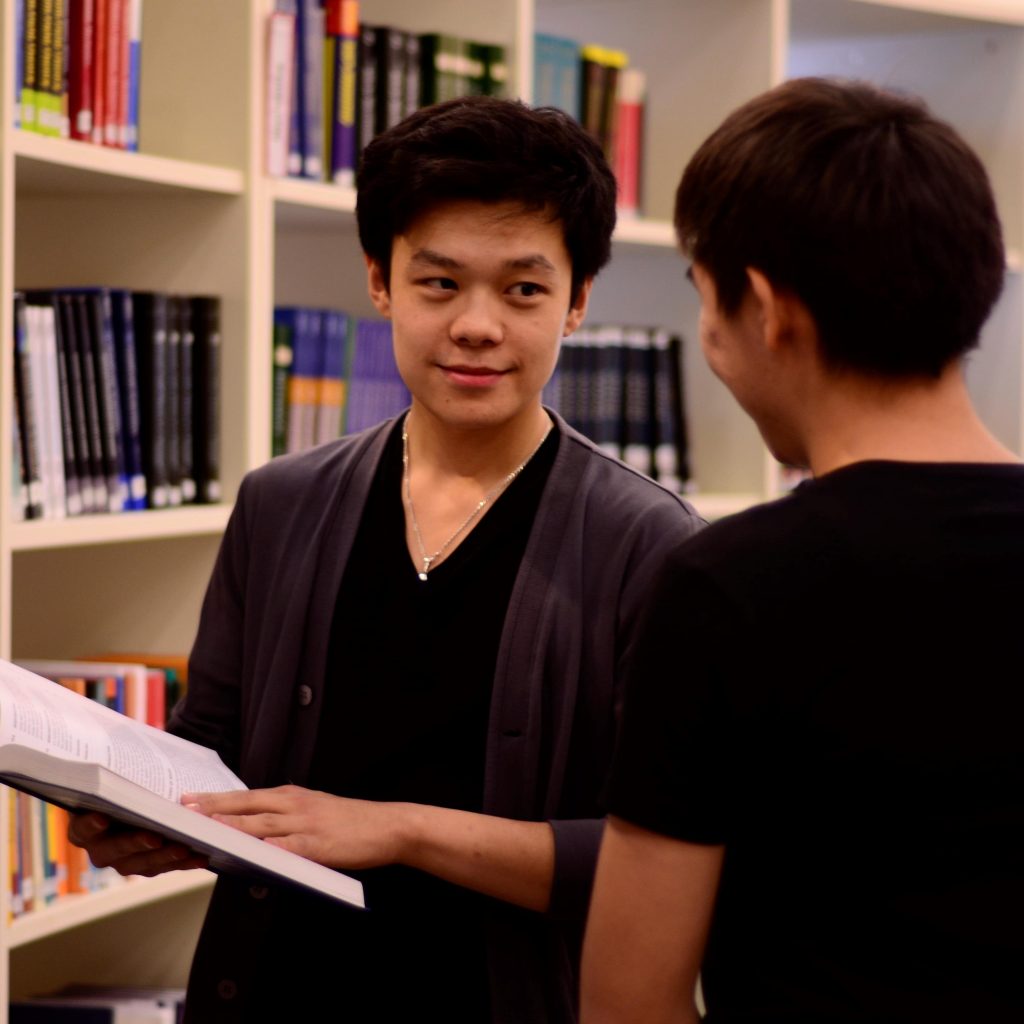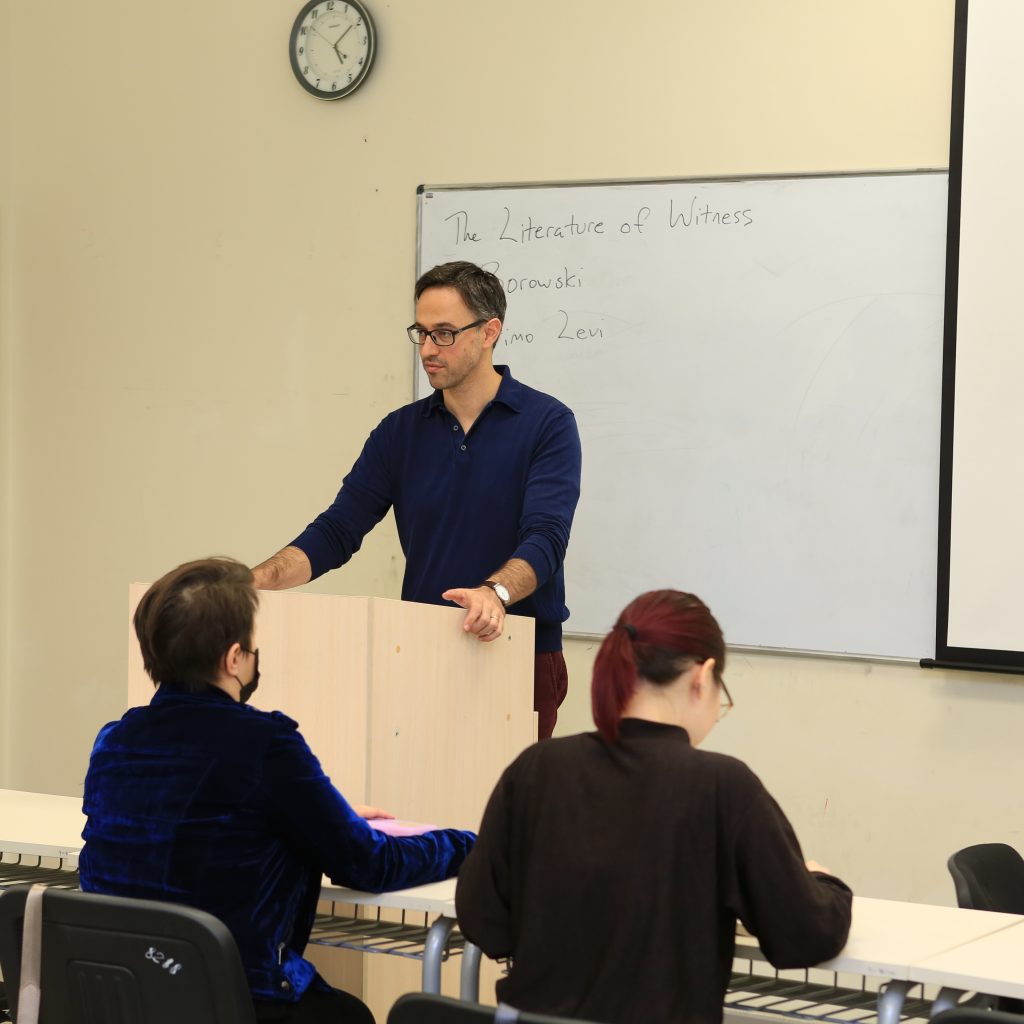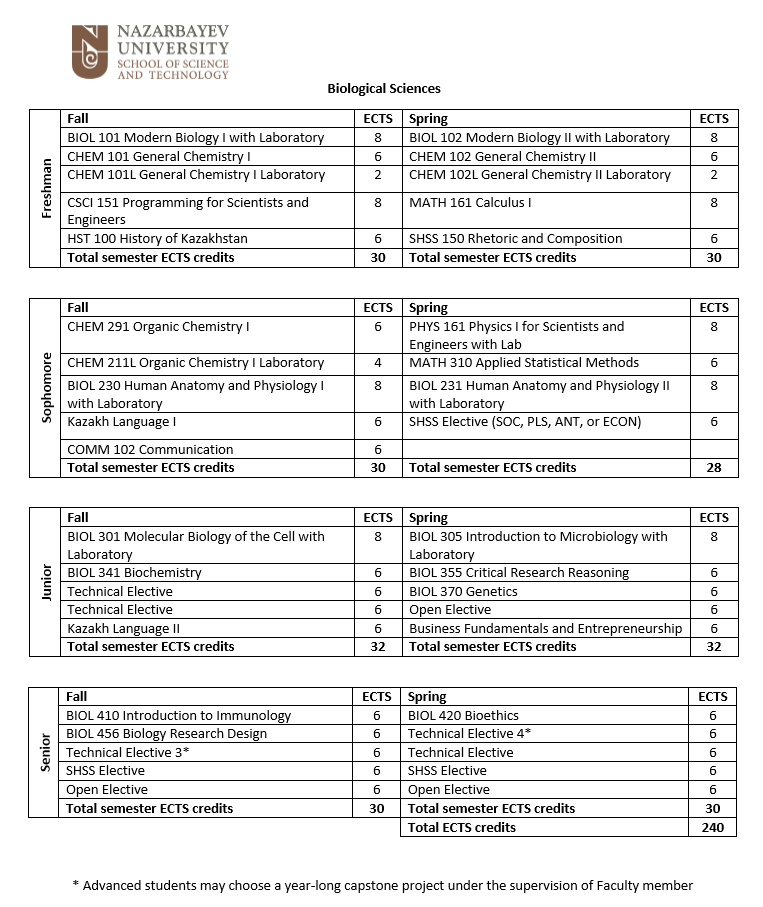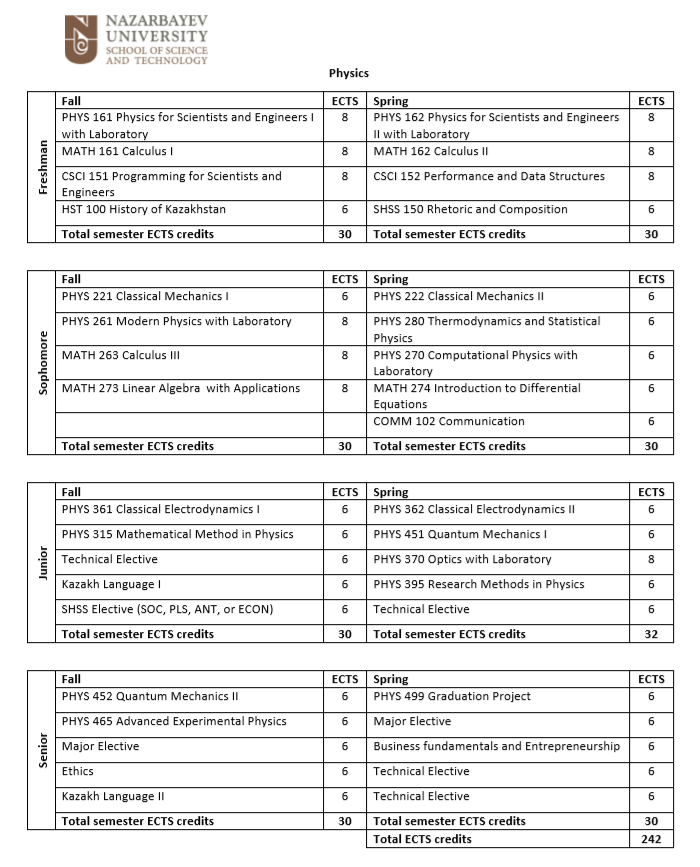In order to earn a Bachelor degree and graduate from SSH, a student must complete a degree program. Each program includes a number of required courses to be taken at various levels as well as a large number of courses to be taken outside of the degree program.

Political Science and International Relations
The degree program in Political Science and International relations (PSIR) offers a flexible and applied degree that is designed to train the next generation of political scientists as well as provide a solid generalist degree to prepare students in variety of professions. It also provides excellent training for future graduate study.
*Both major and minor are available in PSIR
With a B.A. in PSIR you will gain:
Analytical and methodological skills
The ability to build strong, compelling cases with solid proof to back it up
An understanding of how countries interact and build relationships
An understanding of human rights, politics, diplomatic and legal systems
An understanding of how politics are conducted and how we can learn to understand the political world around us
Where can I work with a degree in PSIR?
PSIR is a general degree that will open up your horizons to many different possibilities. Our program in PSIR is perfect for someone who is seeking to build a career in:
Public Sector
Legal Services
Private firms and Multinational organizations
Non-government Organizations
United Nations and other international organizations

The B.A. in Economics provides an undergraduate education in economics with a particular focus on its application to decision making not only in business, but also in the public sector and non-profit organizations. The program offers a terrific academic experience with an emphasis on skills and capabilities appropriate to the study of modern market economies and their relevance to decision making of economic entities.
*Both major and minor are available in Economics
With a B.A. in Economics you will:
- Understand how resources are used and how to allocate them in the most efficient and effective manner
- Understand how households and firms interact individually and together
- Understand the factors influencing income, wealth and well-being
- Understand business and organizational decision-making and the design and implementation of economic policy by government agencies
- Become competent in the use of use quantitative methods, including required mathematical and statistical methods on actual economic and financial data
Where can I work with a degree in Economics?
A B.A. in Economics is fundamental degree and education for anyone, which open many doors and provides opportunities to work in:
- Private Sector
- Public Sector
- Government Entities
- Non-government Organizations
- Multinational Corporations

History is the study of the past. Studying History does not merely consist in the acquisition and reproduction of a standard knowledge of past events: it is about their continual discovery and critical appraisal.
Different sub-fields of History are defined on the basis of the time span covered (Ancient, Medieval, Early Modern, Modern, and Contemporary History), of the geographic area concerned, or of the specific approach or viewpoint they involve. Therefore we talk about cultural history, intellectual history, diplomatic history, economic history, and so on. In many cases, the research and teaching interests of one historian encompass more than one sub-field.
*Both major and minor are available in PSIR
*Both major and minor are available in History. Only minor is available in Philosophy and Religious Studies.
With a degree in history you will be able to:
- Understand familiar cultures, societies, and belief systems
- Analyze how societies worked in the past and apply the knowledge to current situations
- Critically assess other people's arguments and advance you own views in a clear and convincing manner
- Identify, evaluate, and analyze large bodies of information
Where can I work with a degree in History?
Of course, the degree will prepare you to teach and research in the filed of history. But you do not have to be a historian with a B.A. in History, Rather, you will acquire a range of skills that will prepare you for work in such diverse areas as journalism, financial analysis, and law. Here are just some careers that history graduates pursue around the world:
- Law
- Management consultancy
- Civil service
- Marketing
- Diplomacy
- Financial services and analysis
- Journalism
- School teaching
- Academic teaching and research

World Languages, Literatures and Cultures
The degree program in World Languages, Literatures and Cultures offers a flexible and applied degree that is designed to train the next generation of specialists in linguistics, languages and literature, as well as provide a solid generalist degree to prepare students in a variety of professions. This major program provides students with a focused familiarity with one of four languages, cultures, and history of the world: Mandarin Chinese, French, Spanish and German. Students in WLLC program can study everything from the history of the Theater, to the literature of Japan, to the way language is produced and processed in the human brain, varies and changes through time and space. By studying the programs offered by LLL department, students will gain a nuanced understanding of the intricacies of language, culture, poetry and literature, and will become critical and creative writers, and effective communicators. Students completing a degree in Languages and Literature may choose to specialize in one particular area or language, including Anglophone, Spanish, French, German, Chinese and others.
*Both major and minor are available in LLL. Minor in LLL is available in 3 tracks (optional): World languages, Literature, and Culture; Spanish and Hispanic Studies; French and Francophone Studies.
With a B.A. in World Languages, Literatures and Cultures you will gain:
- Cross-disciplinary expertise in literature, and expressive culture from across the world
- Ability to express your thoughts in a coherent and cohesive manner
- Ability to write compellingly, critically, persuasively, and creatively
- Nuanced understanding of the intricacies of poetry, literature, and culture
- Expertise in a particular language or family of languages
- Expertise in multilingual translations, both written and oral
- Understanding of linguistic diversity, language evolution, links between language and mind, society and landscape
- Excellent training for future graduate studies at MA and PhD levels
Where can I work with a degree in World Languages, Literatures and Cultures?
The degree program in World Languages, Literatures and Cultures offers a flexible and applied degree that is designed to train new generation of specialists in a variety of professions in various industries, government positions and non-government organizations,including in journalism and publishing, museum work, library, advertising, public relations, education and language policy, computer industry, entertainment industry, hospitality and tourism, internet and digital media, technical writing, intelligence and law enforcement services, international relations. talented translators with a B.A. in World Languages, Literatures and Cultures are needed almost everywhere. A degree in WLLC will help you build a career in:
- Public Sector
- Museums and libraries
- Publishing (newspapers, books, scripting, editing)
- Academia (schools, universities)
- Entertainment industry (creative writing for theater, television and cinema)
- Government Entities
- Non-government Organizations
- United Nations and other international organizations

Sociology is the study of human society. Rather than investigating the motivations and behavior of individuals - which is what the field of psychology does - sociology focuses on group patterns in a wide range of contexts, from interactions at the "micro" level, to systematic processes at the "macro" or global level, and everything in between. Sociologists try to make the familiar strange, that is they look beyond superficial explanations in an attempt to understand the complexities of social phenomena. To do so, sociologists use a wide variety of research methods, including survey and questionnaires, statistical analysis, informal and in-depth interviews, participant observation and ethnography, and content and textual analysis. Sociology is also a very broad field, with sub-fields focused on the main social institutions (family, work and economy, religion, education, politics, and media), the social divisions (including race/ethnicity, gender and social class), and a variety of other areas, from culture, the environment, and migration to organizations, sport, and social psychology.
*Both major and minor are available in Sociology
With a B.A. in Sociology you will:
- Understand what laws govern interaction within human society
- Understand behavior patterns of small and large groups of people
- Understand various forms of human relations: form civil to military
- Understand what social problems exist and how to solve them
Where can I work with a degree in Sociology?
A degree in Sociology provides you with a solid foundation for graduate studies in the social sciences, which will help you build a career:
- Social services
- Academia (universities)
- Research organizations
- Social research organizations
- Government Entities
- Non-government Organizations
- United Nation and other international organizations

The B.A. in Anthropology is designed to give students the fullest possible understanding of what humanity is. This program is a holistic study of humans with courses in sociocultural, archaeological, biological and linguistic anthropology. In these courses, students will study the cultures of living people around the world, past cultures and the material parts of life such as technology and architecture, as well as genetics, human evolution, human physiology and languages.
*Both major and minor are available in Anthropology
The B.A. in Anthropology is designed to give students the fullest possible understanding of what humanity is. This program is a holistic study of humans with courses in sociocultural, archaeological, biological and linguistic anthropology. In these courses, students will study the cultures of living people around the world, past cultures and the material parts of life such as technology and architecture, as well as genetics, human evolution, human physiology and languages.
With a B.A. in Anthropology you will be able to:
- Understand human society and critically asses the ways in which people differ
- Understand how humans behave in groups (as opposed to psychology, which studies individual behavior)
- Find creative solutions to societal problems, both local and global
Where can I work with a degree in Anthropology?
A B.A. in Anthropology is a comprehensive degree with an exhaustive program aimed at understanding human beings and a perfect opportunity for people looking to work in:
- Research Institutions
- Academia (universities)
- Government Entities
- Non-government Organizations
- United Nations and other international organizations

The Bachelor of Science in Biological Sciences program comprises both state-of-the-art theoretical and hands-on laboratory courses in modern areas of the biological and biomedical sciences and technology including but not limited to, cell and molecular biology, bioinformatics, cell, recombinant, microscopy and imaging technologies, molecular genetics, microbiology, immunology, neurosciences, and a various others.
Our program aligns with the Modernization 3.0 strategy to train a professional, competitive workforce able to succeed nationally and internationally and to promote research and development in Kazakhstan. The integrated teaching, research and innovation approach provides an outstanding preparation for careers in research, academia, medicine, industry, and related fields. Biological Sciences graduates, who have taken advantage of their elective choices, can find work in different fields related to Kazakhstan’s economy, education, environment and health. In these fields they can grow into senior positions in either scientific/technical or non-technical areas.
Graduates of this program will have multiple options to continue their education and acquire a graduate degree from Nazarbayev University or internationally, in various areas of life sciences, medical sciences, or public health.
Until now about two-thirds of graduates with a BSc in Biological Sciences were admitted to Medical Doctor, Master of Science, or Master of Public Health programs at Nazarbayev University School of Medicine. About 10% of graduates pursued graduate education at reputable foreign institutions in Europe, North America, Japan, Singapore and Korea. The remaining graduates chose to enter other graduate programs at Nazarbayev University including our Master of Science program in Biological Sciences and Technologies or were offered jobs.


In the Department of Chemistry, we offer the Bachelor of Science degree program with a set of core courses and a list of electives in Organic, Inorganic, Physical, Analytical chemistry, and Biochemistry. We have provided the fundamental knowledge, essential problem solving skills and strategies in various chemistry related areas.
Industries where the major can be applied:
- Research and experimental development in natural sciences and engineering (NSE)
- Hazardous waste management
- Water Resource management
- Manufacture of coke, refined petroleum products and nuclear fuel
- Pharmacy

Mathematics
The Bachelor of Science Program in Mathematics is a 240 ECTS program and is to be completed in 8 regular semesters. The program is designed to train students in the theory of mathematics and to develop mathematical skills and mastery, used in the modern applications of mathematics in science and engineering. Through specialized courses as part of mathematics elective and technical elective requirements, students will have the opportunity to deepen and broaden their mathematical foundations and skills, which will make them more competitive in the mathematics-related job market and/or will prepare them for graduate studies in the area of pure and applied mathematics or statistics. Flexibility in selecting non-mathematics electives will also allow students to complete a minor in a different discipline.

Assumptions about students
Students who begin a Physics major course curriculum will generally possess:
1) natural curiosity and excitement about science in general, physics and mathematics in particular, and their applications;
2) knowledge of high-school physics;
3) good mathematical abilities with the basic differentiation and integration skills;
4) level of English speaking, writing and reading skills sufficient for successful completion of courses offered in English.
Program outcomes
1) The Program will prepare students for national and international careers and/or graduate studies in diverse areas of physical sciences and engineering.
2) Students will develop comprehensive understanding of the fundamental laws of physics, abstract reasoning ability and creative scientific approach supplemented by mathematical, computational and experimental skills. Students are also expected to develop a mature understanding of their personal strengths and interests in physics research and beyond.
3) Additional outcomes preparing students for modern science and technology careers will include the ability to work effectively within a team, strong scientific communication skills, and exposure to academic and/or industrial research environment.
Industries where the major can be applied:
- Research and development in natural sciences and engineering (NSE)
- Astronomy and Space Science
- Nuclear Energy, Geophysics and Seismology
- Climate and Meteorology
- Oil and Gas
- Water Resources management
- Hazardous waste management
- Mining
- Finance and Banking
- Aerospace and Defense
- Telecommunications
- Big data
- Biotechnology
- High-performance computing

Program Requirements:
The Bachelor of Physics degree requires the completion of the following coursework:
1) Physics Core Courses (54 credits):
Careers in Physics (PHYS105)
Physics I for Physics Majors with Laboratory (PHYS171)
Physics II for Physics Majors with Laboratory (PHYS172)
Classical Mechanics I (PHYS221)
Classical Mechanics II (PHYS222)
Electrical and Electronic Circuits I with Laboratory (PHYS251/ROBT203)
Modern Physics with Laboratory (PHYS261)
Computational Physics with Laboratory (PHYS270)
Thermodynamics and Statistical Physics (PHYS280)
Mathematical Methods of Physics (PHYS315)
Classical Electrodynamics I (PHYS361)
Classical Electrodynamics II (PHYS362)
Optics with Laboratory (PHYS370)
Physics Seminar (PHYS395)
Quantum Mechanics I (PHYS451)
Quantum Mechanics II (PHYS452)
Advanced Experimental Physics (PHYS465)
Physics Colloquium (PHYS495)
Senior-Year Options:
1)Bachelor Thesis Option (12 credits)
Physics Elective Courses (6 credits)
Bachelor Thesis (6 credits)
2)No Thesis Option (12 credits)
Physics Elective Courses (6 credits)
Natural Science or Technology Elective Course (3 credits)
[subject to the approval by the Physics Department]Physics Research Course (3 credits)
2) Mathematics and Programming Core Courses (22 credits):
Calculus I (MATH161)
Calculus II (MATH162)
Calculus III (MATH263)
Linear Algebra with Applications (MATH273)
Introduction to Differential Equations (MATH274)
Programming for Scientists and Engineers (CSCI151)
3) Other Natural Science Core Courses (4 credits):
Chemistry I with Laboratory (CHEM101 and CHEM101L)
4) Required Communication Courses (9 credits):
Communication Foundations I (COMM101)
Communication Foundations II (COMM102)
Scientific Writing for Popular Media (COMM225)
5) University-required Kazakh History, Language and Culture courses (9 credits):
History of Kazakhstan (HST 100)
6 credits of Kazakh Language, Literature or Culture (number starting with KAZ)
6) Humanities or Social Science Electives (6 credits):
7) Unrestricted Electives (9 credits)
TOTAL: 125 credits
Major
A major is a focused area of study that a student commits to and, upon completion of degree program requirements, earns a degree in. Each major in SHSS is completed by following a program of study that is designed to ensure that students develop expertise in a chosen field. In order to develop expertise in the field, all of the programs of study include a number of courses that are required within the major area. Those courses are known as Major Requirements.
A total of 240 ECTS credits are required to complete any SHSS Major, which takes four years of full-time study.
Double Major
Some students will be able to complete a Double Major by fulfilling the Major Requirements of two SHSS majors. Because of the different Distribution Requirements in each NU school, it is not possible to complete a Major in SHSS as well as one in another school within four years.
Minor
SHSS also provides students with the opportunity to study a Minor Program. A minor is an academic area that a student emphasizes in her or his studies but does not commit to as intensely as a major. A student does not need to have a minor to graduate. This is intended as a way to help a student focus a portion of their studies on a field that they find interesting or useful. Successful completion of a minor will be noted on a student's transcript, but no diploma or formal certification is issued. Completion of a Minor typically requires 38 ECTS credits of specific coursework to be completed within a discipline.
In most cases students may take a double major or a major and a minor but not more than this.




